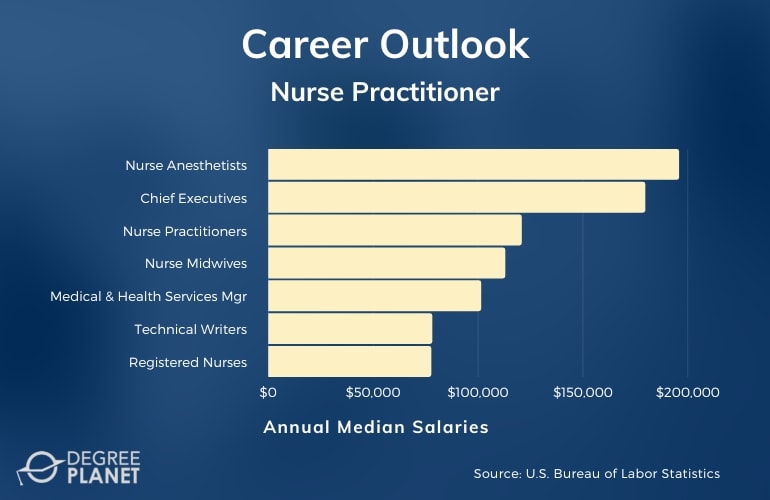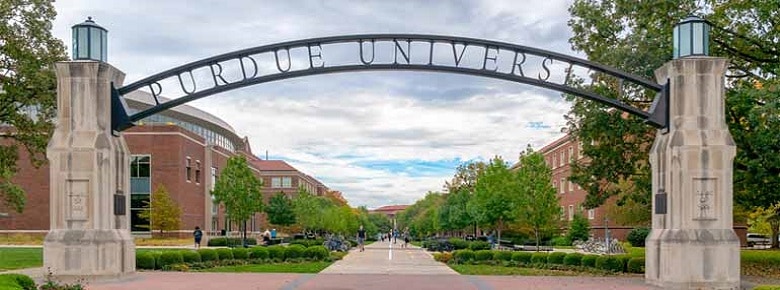An MSN to DNP program can help you advance to the top of your field as a highly trained and qualified nursing leader.

This degree program is designed to equip you with specialized knowledge for your area of nursing and prepare you for leadership roles.
Editorial Listing ShortCode:
If you’re a college-educated nurse who’s ready to take your career to the next level, you can take a look at online MSN to DNP programs that suit your background, interests, and availability.
MSN to DNP Programs Online

A Bachelor of Science in Nursing (BSN) can provide the initial training for becoming a registered nurse (RN), but there’s still plenty more that you can learn in this field.
A graduate degree in nursing can equip you to go further in your nursing career. Through graduate study, you could pursue a career as an advanced practice registered nurse (APRN) or a nursing leader.
There are two primary graduate degrees in this field for nurses. The first is the Master of Science in Nursing (MSN). The other is the Doctor of Nursing Practice (DNP). If you’d like to hold both of these degrees, then you might want to consider an MSN to DNP program.
Colleges’ MSN to DNP offerings come in a few different formats. A particular program might be designed for students who:
- Have a BSN but no graduate degree
- Have completed a BSN plus a master’s from a non-nursing healthcare program
- Hold an MSN degree
The type of program you’ll need will depend on how much nursing education you’ve already completed. Some colleges specialize in just one MSN to DNP format, while others offer a mix of options.
Editorial Listing ShortCode:
Students in MSN to DNP graduate programs specialize in a particular area of nursing practice. They may study a particular branch of care, such as:
- Adult-gerontology
- Gynecology
- Family practice
- Pediatrics
- Acute care
Alternatively, they could focus on an area of leadership, such as nursing informatics or nurse education. Some colleges offer these programs for online study. Often, a degree can be completed fully online without ever needing to visit the college campus.
There are clinical experiences required for most advanced nursing programs. When you’re enrolled in an online degree program, the school may help you locate a clinical practice site in your local community. You might be required to complete a capstone project toward the end of your studies. Through this project, you can demonstrate an advanced understanding of your nursing niche.
Once you complete your degree, you may qualify for certification and licensure as an advanced practice registered nurse (APRN). Some graduates go on to become nursing directors or nursing instructors.
Common Online DNP Specializations

Graduate students in a nursing train to become experts in one particular area of nursing. Some of the most common specialization areas include:
- Adult-Gerontology Nursing. In an adult gerontology concentration, you’ll develop your expertise in adult and senior health services for primary-care or acute-care settings.
- Family Nurse Practitioner. This degree program helps equip you to provide primary healthcare—including wellness checks, diagnoses, and treatments—for patients of all ages.
- Nurse Administrator. As an administrative leader, you might handle staffing issues, regulatory compliance, informatics, and other responsibilities involved in running a nursing department.
- Nursing Education. This program would help prepare you to teach nursing at the college level, and your skills could also be useful in community health education or workplace development for nurses.
- Women’s Health. You might study gynecological care and obstetrics and also learn to assist female patients with their primary healthcare needs.
Additional specialization areas might include pediatrics, psychiatric nursing, public health, and emergency care.
Nurse Practitioner Careers and Salaries

As a nurse with a graduate degree, you could choose to be a clinical practitioner, or you could provide nursing leadership in a different way.
Nurses with college degrees often begin their careers as registered nurses (RN). Those with graduate degrees may qualify to become advanced practice registered nurses (APRN). That job category includes roles like nurse practitioner, nurse midwife, and nurse anesthetist.
APRNs often work in doctor’s offices, hospitals, and ambulatory care centers. There may also be jobs in community agencies and schools. Nursing leadership is another job area to consider. People with MSN or DNP degrees may work as health informatics specialists, clinical managers, or health information managers.
There may also be leadership roles available in community or social service agencies that provide healthcare. With additional certification, it might also be possible to work as a nursing home administrator.
According to the Bureau of Labor Statistics, healthcare practitioners earn a median annual salary of $75,040.
| Careers | Annual Median Salaries |
| Nurse Anesthetists | $195,610 |
| Chief Executives | $179,520 |
| Nurse Practitioners | $120,680 |
| Nurse Midwives | $112,830 |
| Medical and Health Services Managers | $101,340 |
| Technical Writers | $78,060 |
| Registered Nurses | $77,600 |
| Postsecondary Nursing Instructors and Teachers | $77,440 |
| Social and Community Service Managers | $74,000 |
| Health Education Specialists | $60,600 |
The amount of money you make as a nurse with a graduate degree can depend on a variety of factors, such as your previous work experience, your nursing specialty, and where you practice.
Some graduates want to work as educators. For example, they might teach nursing classes at the college level. Some nursing instructors provide classroom instruction, and others oversee students’ clinical experiences. There are also nurses who help community members improve their health through classes and programs. Another option would be to provide workplace training for nursing teams.
If this sounds like you, a growing number of universities offer nurse educator certificate online or on-campus programs to prepare you for these roles.
Editorial Listing ShortCode:
Nurses at this level can also consider jobs as writers. Some might write health-related grants. Others can prepare material for publications, such as industry journals or health websites. Experts in this field could also write or review textbooks for nursing students.
Doctor of Nursing Practice Curriculum & Courses

Most nursing doctoral programs online include core nursing classes for all students. They also include courses that focus on specific specialty areas.
Common nursing classes include:
- Advanced Nursing Theories: You’ll examine models of care and consider the interplay of nursing with other fields, such as social science.
- Assessment and Diagnosis: You might learn how to find out about patients’ health conditions and provide accurate diagnoses.
- Epidemiology: In this class, you’ll study disease trends and patterns while also discussing public health and biostatistics.
- Evidence-Based Nursing Practice: As you take this class, you’ll become more familiar with healthcare research methods and learn to provide care that is backed by solid evidence.
- Health Law and Ethics: You can consider what it means to care for patients ethically and also study ways to improve healthcare through funding and legislation.
- Human Lifespan Healthcare: As you prepare to work as a nurse practitioner, you might take a class on human development and health needs during various stages of life.
- Methodologies for Teaching and Learning: You can take a class that prepares you to provide effective, evidence-based instruction for adult learners.
- Organizational Leadership: You can learn what’s involved in taking care of the business and staffing responsibilities of a healthcare department.
- Overview of Advanced Nursing: This introductory class would set the stage for your graduate-level studies in nursing.
- Pharmacology: As you prepare to prescribe medication to your patients, you will learn how various pharmaceuticals work.
Your lineup of classes will largely depend on the specialty area you choose.
MSN to DNP Program Admissions Requirements

To be admitted to an MSN to DNP program, you’re required to show that you have experience in nursing and that you’re ready for graduate-level work in this field.
Your application might include the following:
- Background check
- College transcripts that show the degree you earned and your GPA
- GRE score (not required by all graduate programs)
- Resume
- RN or APRN license
The type of college degree you’re required to hold will depend on the format of your program. Some schools require applicants to hold an MSN, and others take BSN graduates or people with master’s degrees in related fields.
MSN DNP Programs Online Accreditation

Online MSN DNP programs are available through regionally accredited colleges. By selecting a regionally accredited institution for your studies, you can set yourself up for a high-quality education.
Editorial Listing ShortCode:
Schools earn accreditation status by demonstrating their commitment to educational excellence. Regional accreditation is beneficial for students who want to use federal financial aid, transfer credits to other colleges, or pursue further degrees. Also, accredited studies may be a requirement for earning industry certification or licensure.
CCNE Accreditation for MSN to DNP Online Programs
The Commission on Collegiate Nursing Education (CCNE) evaluates the strength of a college’s nursing program. MSN to DNP programs that hold CCNE accreditation have proven that they meet industry standards for quality and thoroughness in nursing education.
Whether you go to school on-campus or online, you can be confident about the education you’ll receive at a CCNE accredited program. You could graduate well-prepared for licensing exams. Employers have high regard for CCNE accreditation as well.
Financial Aid and Scholarships

Financial assistance may help you cover the upfront tuition for an advanced nursing program. You might be able to borrow money from the government through state or federal loan programs. There might be some grant money available to you, too, but that’s usually reserved for undergraduate students.
Scholarships and fellowships could be alternatives to grants at this level of study. Whether you secure these funds through your college or an outside organization, they may help reduce your tuition. Your workplace might also contribute to the cost. As a first step, you can fill out the Free Application for Federal Student Aid (FAFSA).
What Can You Do with a DNP Degree?

Having a DNP may qualify you for certification as an advanced practice registered nurse (APRN), depending on your degree specialty.
You could choose to work in a specialty area such as gynecology, emergency medicine, mental health, or primary care. Jobs might be available in hospitals, physicians’ practices, or outpatient clinics. With a DNP, you might also be able to teach at the college level. Nursing instructors are needed for both undergraduate and graduate students.
There’s also the possibility of becoming a healthcare administrator or director. According to the Bureau of Labor Statistics, medical manager roles include being a clinical manager or a health information manager.
MSN to DNP, How Long Does It Take Online?

Online MSN to DNP programs typically take 1 to 4 years to complete, depending on the university and your chosen specialty.
MSN DNP online one year programs require full-time study, but part-time programs are sometimes available for those willing to stay in school longer. For the fastest online MSN DNP program, it’s necessary to begin by already holding an MSN in your chosen specialty area. That way, you will only be required to complete about 27 to 36 credit hours.
What’s the Difference Between an MSN vs. DNP Program?
Let’s take a look at how the two options for graduate degrees in nursing compare.
| Master of Science in Nursing (MSN) | Doctor of Nursing Practice (DNP) |
|
|
While the two degrees can lead to similar roles, having more education may provide increased opportunities or the potential for higher pay.
Is an MSN to DNP Online Worth It?

Yes, an MSN to DNP online is worth it for many professionals. Job growth in advanced nursing is promising. The Bureau of Labor Statistics predicts a 28% growth rate for management roles in medical and health services and a 40% growth rate for APRN positions over the next ten years.
Editorial Listing ShortCode:
Also, some nursing organizations are calling for nurse practitioners to have as much education as possible. Holding a DNP could help prepare you for any future changes in APRN requirements.
Universities Offering Online MSN to DNP Degree Programs
Methodology: The following school list is in alphabetical order. To be included, a college or university must be regionally accredited and offer degree programs online or in a hybrid format.

Hawai’i Pacific University offers a Doctor of Nursing Practice. This program is designed for practicing nurses who have already obtained their Master of Science in Nursing. The 30 credit curriculum covers advanced concepts like transcultural care, heath informatics, health policy, and leadership. Students in the program have the convenience of attending classes asynchronously online.
Hawai’i Pacific University is accredited by the WASC Senior College and University Commission.

Purdue University offers a Doctor of Nursing Practice. The program offers a 60 credit track for students who have completed a Master of Science in Nursing and a 90 credit track for students who need to simultaneously complete their MSN. Classes meet online, and each one is 10 weeks long. Most students can complete the program in 2 years.
Purdue University is accredited by the Higher Learning Commission.

Regis College offers an online program for a Doctor of Nursing Practice. This curriculum is intended for students who have obtained their Master of Science in Nursing. Students can select a nurse practitioner specialization in Pediatrics, Psychiatric Mental Health, Women’s Health, Primary or Acute Adult Gerontology, Leadership, or Education. On average, students can complete the degree in 24 to 36 months.
Regis College is accredited by the New England Commission of Higher Education.

The University of Cincinnati offers a Doctor of Nursing Practice. Students need to have obtained a master’s in nursing for nurse practitioners or clinical nurse specialists to qualify for admission. The program offers numerous online specializations, including Systems Leadership, Psychiatric Mental Health, Occupational Health, or Pediatric Acute Care. New students are admitted twice yearly.
The University of Cincinnati is accredited by the Higher Learning Commission.

The University of Florida offers a Doctor of Nursing Practice for practicing licensed nurses who have previously completed their Master of Science in Nursing. Students must complete a minimum of 35 credits and 528 clinical hours to graduate. Potential classes include Nursing Informatics and Information Management, Health Promotion, and Health Policy and Finance.
The University of Florida is accredited by the Southern Association of Colleges and Schools Commission on Colleges.

The Doctor of Nursing Practice program at the University of Michigan—Flint offers an Advanced Practice track for MSN-prepared and licensed nurses. Classes cover concepts like informatics, health policy, epidemiology, and biostatistics. This program is housed primarily online and requires minimal campus visits. Most students can complete the program’s 34 required credits in 5 semesters.
The University of Michigan – Flint is accredited by the Higher Learning Commission.

The University of North Carolina—Chapel Hill offers a Doctor of Nursing Practice. This program is designed for licensed, practicing nurses who have already completed their master’s in nursing. Potential courses include Critical Appraisal of Evidence, Population Health in a Global Context, and Public Policy and Advocacy in Healthcare. All classes meet 100% online.
The University of North Carolina at Chapel Hill is accredited by the Southern Association of Colleges and Schools Commission on Colleges.

The University of South Alabama offers a Doctor of Nursing Practice for practicing MSN-prepared, licensed nurses. Students can select from several specialties, including Nursing Informatics, Family Nurse Practitioner, and Executive Nurse Administrator. This program utilizes a fully online learning format designed with working students in mind. The curriculum consists of 36 total credit hours.
The University of South Alabama is accredited by the Southern Association of Colleges and Schools Commission on Colleges.

The University of Toledo offers a Doctor of Nursing Practice. This program may be an ideal fit for nurses who have already obtained their master’s but want to study nursing theory and clinical practice at the highest level. The curriculum covers concepts like evidence-based practice, quality improvement in healthcare, and systems leadership. All classes meet online.
The University of Toledo is accredited by the Higher Learning Commission.

Wichita State University offers a Doctor of Nursing Practice designed for nurses who have completed a Master of Science in Nursing and are currently practicing. This research-focused curriculum is housed entirely online. On average, students can complete the program’s 29 required credit hours in 2 to 3 years.
Wichita State is accredited by the Higher Learning Commission.
Getting Your DNP Online

If nursing is your passion, then you may want to get as much training and education in the field as you can. After completing an MSN to DNP program, you will hold two advanced nursing degrees.
You can work as an expert who provides highly skilled healthcare services, workplace leadership, or nursing education. This degree can be completed through online study and in-person clinicals in a local healthcare setting. With online programming, you can acquire advanced training on a schedule that suits you.
Accredited colleges that offer distance learning are promising options for busy professionals. You can start exploring accredited online DNP programs today!

